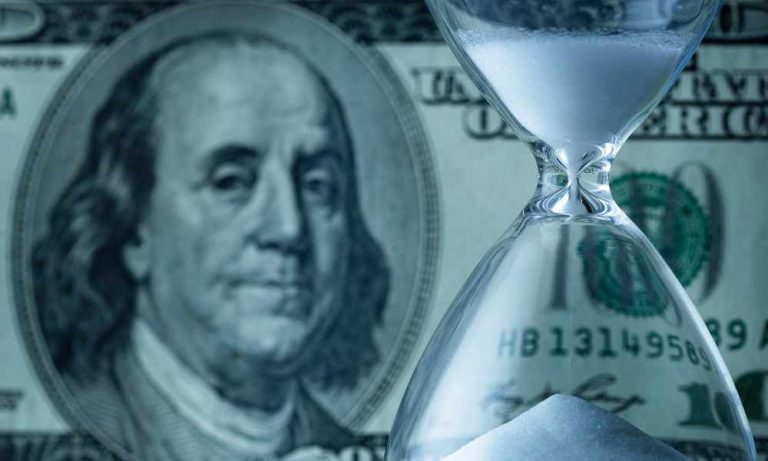
Jeffrey Tucker says we are at the turning point for the U.S. dollar, citing a growing de-dollarization trend. “The dollar’s just not going to be king,” he warned, adding that history will record recent events “as the turning point for the dollar.”
Jeffrey Tucker on De-Dollarization, USD’s Turning Point
Jeffrey Tucker, an author and publisher who worked for former U.S. Representative Ron Paul and the Mises Institute for many years, shared his view on the growing de-dollarization trend and its effects on the U.S. economy in an interview with NTD News on Wednesday.
Responding to a question about whether de-dollarization is actually happening and when we will feel its effects, he explained that the U.S. has held dominance in the global currency market since 1944, which has enabled it to influence policies worldwide. However, referring to the attack and sanctions imposed by the U.S. government on Russia following the outbreak of the Russia-Ukraine war, he opined:
History will record that was the turning point for the dollar. Since 1944, the dollar has been dominant even after the end of the gold standard in 1971 … That has really changed with the attack on Russia and the sanctions because a lot of those assets that were confiscated by the U.S. just arbitrarily were denominated, of course, in dollars.
“If the U.S. puts its political might behind other people’s willingness to hold its currency and bludgeons them and attacks them and criticizes their own policies and actually confiscates assets, then that just discourages people from holding the dollar. So, suddenly we have a situation where all these very powerful, important countries are saying: ‘We need to do something about this. Let’s dump the dollar. We’ve got to move on to something else.’ They can do it and it’s starting to happen,” he detailed.
Noting that the BRICS countries (Brazil, Russia, India, China, and South Africa) are starting to “marginalize” the USD, he stressed that it will affect the status of U.S. debt which could really restrain the Federal Reserve.
Inflation Is ‘Sticky’
Regarding how de-dollarization affects Americans in terms of a potential recession, Tucker explained: “The impact domestically is not going to be as pronounced as people might think. The big thing we have to worry about domestically is domestic de-dollarization, namely inflation.”
He stressed that inflation is “sticky,” adding: “It’s with us. It’s not going anywhere. The Fed hasn’t been able to reverse it.” He further noted that the USD has lost 15 cents of its value over the past two and a half years. “That’s inflation,” he exclaimed, emphasizing that it’s the “direct consequence of the Fed’s mismanagement.”
Tucker cautioned: “De-dollarization will affect us as we travel internationally. Right now, the dollar is basically gold anywhere you travel in the U.S. … That will definitely come to an end.” Furthermore, he said it will “also seriously hurt international business that’s domiciled in the U.S.” He concluded:
The dollar’s just not going to be king. This isn’t going to happen tomorrow or next year or even the next five years, but looking at the long-term trajectory, I think we are at a turning point.
Do you agree with Jeffrey Tucker about de-dollarization? Let us know in the comments section below.